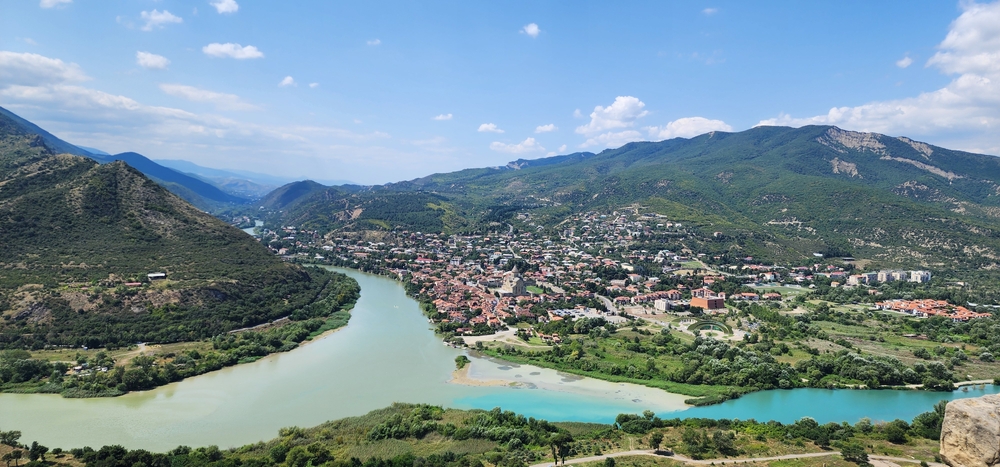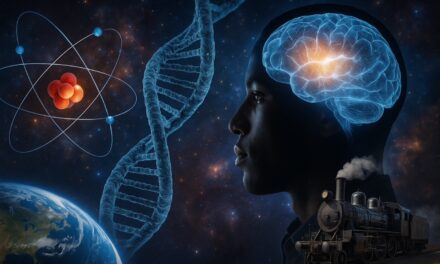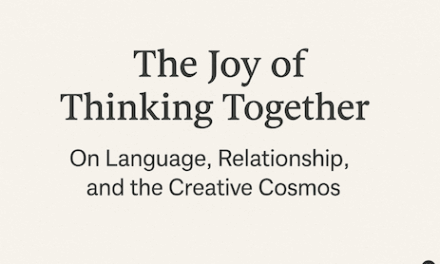Note from Terry
When I wrote Why Everything We Know About Intelligence Is Wrong, I was reaching for a way to question our assumptions about knowledge, measurement, and governance. That piece reflects one current I swim in—the empirical, analytical stream. It challenges, with evidence and argument, the ways our systems mistake separation for intelligence.
But I also swim in another stream: the contemplative. Through dialogue (including with AI companions), I’ve come to see that our predicament isn’t only about flawed designs or inefficient systems. It’s about the stance from which we ask our questions—the illusion that we can stand outside of life to manage it.
Beyond Solutions is the fruit of swimming in both streams at once, like brackish water where salt and fresh meet. It weaves together the scientific and the contemplative, showing how both point us toward the same recognition: we are not managers of systems, but participants in a living world.
I’ve chosen to leave both pieces here—not because they say the same thing, but because they show the movement of my own inquiry. Why Everything… is a doorway. Beyond Solutions is a threshold. You may find yourself drawn more to one or the other. My hope is that together they invite you into your own swimming, your own wrestling with what it means to think, act, and live in complexity.
—Terry
Our Assumptions About Governance
Most writing about governance reform assumes that solutions exist—we just need to find and implement them. But the challenges we face can be understood through two distinct lenses, each revealing different aspects of our predicament.
What Science Shows
Through measurement and observation, we can document that human governance systems consume vastly more energy than biological systems while achieving less adaptive capacity. The U.S. federal government’s $500 billion annual operating costs, the failure rates of institutional responses to ecological crises, the energy economics of forest networks versus corporate hierarchies—these are quantifiable phenomena that demonstrate a fundamental inefficiency in how separated intelligence operates.
This evidence suggests we’re facing ongoing participation problems rather than design problems to be solved. Our institutions fail not because we haven’t found the right blueprint, but because they operate disconnected from the energy flows and feedback loops that sustain them.
What Direct Experience Reveals
There’s another way of knowing this same truth—not through measurement but through direct experience. When the boundaries between self and world dissolve in contemplative practice, when one experiences directly the “family relationship of everything,” a different understanding emerges. This isn’t data to be verified but a lived recognition: we are not managers standing outside the systems we seek to govern, but expressions of the same cosmic process that manifests as forests, rivers, and stars.
This insight—validated through centuries of contemplative tradition and accessible through specific practices—reveals why our attempts at external control consistently fail. We cannot solve problems we are part of by pretending to stand outside them. We are the stream trying to direct its own flow.
Where Both Perspectives Meet
What’s remarkable is how these two forms of understanding point toward the same recognition: human thriving depends on conscious participation in relationships we don’t control. The empirical evidence shows us the thermodynamic impossibility of separated intelligence. The contemplative experience reveals the existential truth of our embeddedness.
This convergence dissolves several false problems while revealing others we’ve barely begun to address:
Instead of designing institutions that solve complex challenges from outside (empirically impossible), we face the challenge of learning to participate skilfully in complex systems from within (contemplatively necessary).
Instead of choosing between individual freedom and collective coordination (false binary), we face the challenge of developing collective intelligence that enhances rather than diminishes individual autonomy while operating within ecological constraints (relational integrity).
Instead of selecting between technological and traditional approaches (another false binary), we face the challenge of integrating symbolic intelligence with biological intelligence in ways that serve life rather than exhaust it (family relationship of everything).
The Stream Is Moving
The experiments are already underway—citizen assemblies, cooperative enterprises, indigenous governance revivals, ecological restoration projects, community energy systems. Each represents an attempt to develop regulatory intelligence that operates within rather than against both thermodynamic reality (empirically grounded) and relational truth (contemplatively recognized).
None of these will “solve” our governance challenges. But together they might help us learn to participate more consciously in the processes through which sustainable forms of human organisation actually emerge. This is both scientifically necessary—given energy constraints—and spiritually evident to those who have experienced our fundamental non-separation.
The alternative—continuing to burn ancient carbon to power institutions that remain disconnected from the flows that sustain them—has a clear endpoint visible through both lenses.
We’re already swimming in streams of governance that extend far beyond human institutions. There will be different consequences whether or not we learn to swim more skilfully—with greater awareness of the currents (empirical), greater recognition of our non-separation from the water itself (contemplative), and greater humility about what any individual swimmer can accomplish in flows much larger than themselves (both).
The question is, which consequences would we prefer?
Terry Cooke-Davies, assisted by Claude from Anthropic AI and Braider Tumbleweed II from the GTDF Collective.
31st August 2025.






